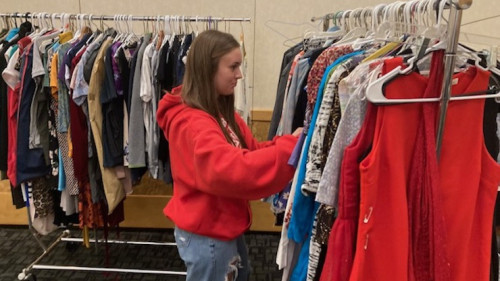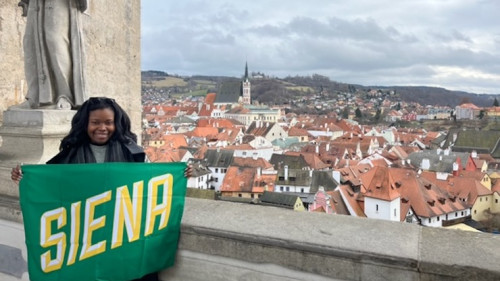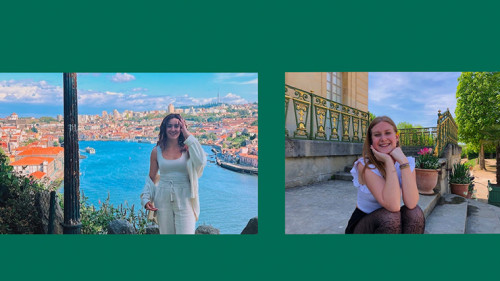
Imprisoned in the past for speaking out about his political beliefs, Saladdin Ahmed, Ph.D. has found a temporary safe harbor at Siena College.
Ahmed is teaching here this academic year through Scholars at Risk, an international network of colleges that host academics who are in danger in their home countries because of their teaching, writing or beliefs. The organization’s mission is to “support and defend the principles of academic freedom and to defend the human rights of scholars around the world.”
Ahmed, a native of the Kurdish region of Iraq, is a visiting assistant professor of political science here until May. He is teaching international relations, and he presented in March on his new book “Totalitarian Space and the Destruction of Aura,” which explores the concept of personal and social space as it relates to the modern state.
“Space is something I have been searching for most of my life,” he said. “If you don’t feel at home, you lose the ability to speak, think, and daydream. Many refugees and women have this same experience; being constantly aware of the gaze of others deprives you of your personhood.”
Ahmed emigrated for political reasons from Iraq to Canada in 2001. After earning his doctorate there, he taught in Turkey. Fired for his work with marginalized groups, he and his colleagues were persecuted for signing a petition asking for peace. This was shortly before the 2016 coup attempt, when there was a crackdown on Kurdish people living in the country.
“We signed a petition asking for peaceful resolution, but long before that the police were watching me very closely,” he said. “I was very worried about my students. I still avoid contacting them.”
He came back to teach in Canada and Washington state before arriving at Siena last fall. He notes that American and Canadian students have a somewhat different approach to their studies and discussion about politics.
“My impression of students here is good,” he said. “We’ve had good debates about a lot of topics. Generally, they are more politically correct than previous generations, and are very careful about how they express their opinions.”
Conor Edwin Graham ’21 is grateful for the experience of studying with a Scholar at Risk in his Political Power and Social Space class.
“Dr. Ahmed has been a wonderful and unexpected addition to my Siena College experience,” he said. “He brings such a remarkably unique perspective to international relations and philosophy that I feel distinguished among students in the United States to have had studied with him. I'm looking forward to reading his new book and excited to see what he does next.”
Due to the daily life experiences in Turkey, Iraq and other countries experiencing political strife, university faculty and students there have higher personal stakes in discussing various issues.
“There is such a sense of oppression, of ‘othering’ that is reflected in every area of university life,” he explained. “There is a great deal of awareness of anti-racism, anti-sexism, feminism and resistance of political oppression and students tend to be very active in spite of the dangers they face.”
Vera Eccarius-Kelly, Ph.D., professor of comparative politics, has been instrumental in coordinating Siena’s involvement with Scholars at Risk.
"As a Franciscan institution, we deeply value the pursuit of peace and justice in our learning communities,” she said. “Our students have benefited greatly from this opportunity to directly engage with Dr. Ahmed. Despite the enormous adversity he has faced, he continues to share his scholarly work with our students. He is also an activist who inspired our majors to initiate a children's book drive for recently resettled refugees."
Siena previously hosted another Scholar at Risk: Delaram Farzaneh, Ph.D., a human rights scholar and lawyer from Iran who spent several days with students in 2017 to discuss her work on human rights in her native country.

